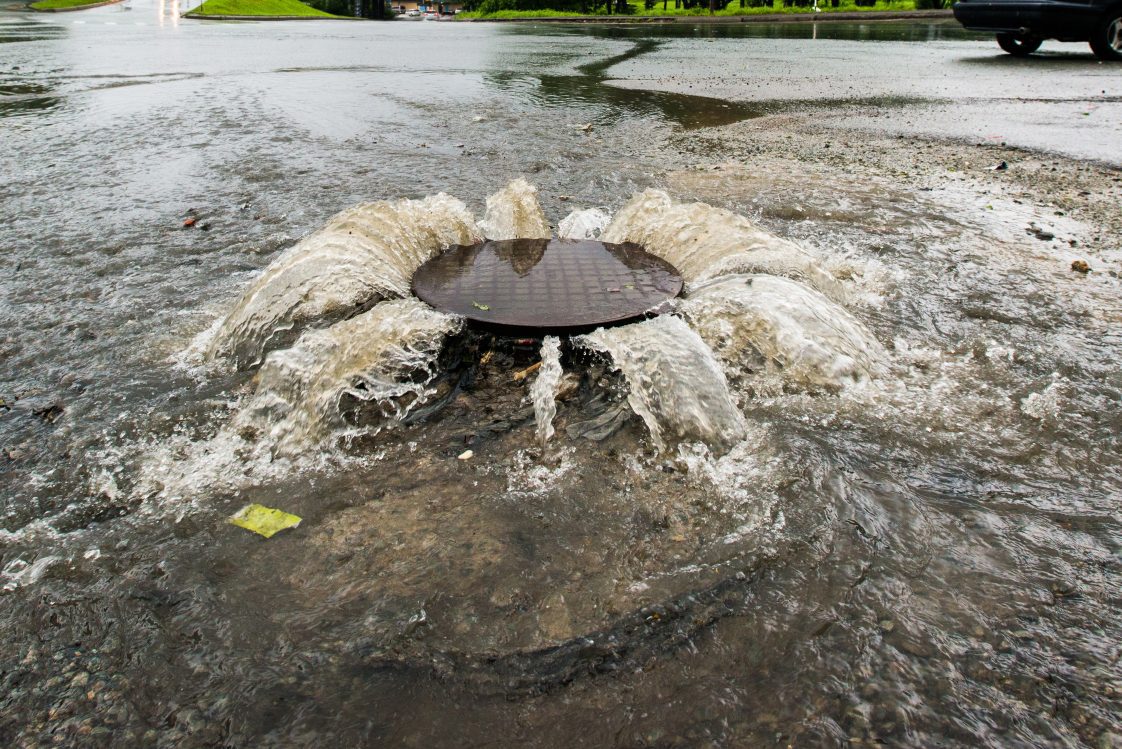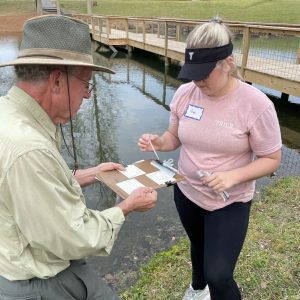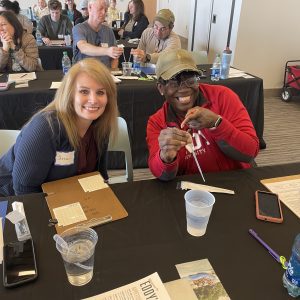Fish & Water

Alabama is a great place for water-recreation enthusiasts. The state has 132,000 miles of streams and rivers, more than 500,000 acres of lakes and ponds, and a stunning coastline, all just waiting to be explored, kayaked, and fished. As temperatures rise, many Alabamians will begin spending their weekends on the water. Before taking to the water, most people consider how they will do so safely, including using life jackets, practicing responsible boating, and applying sunscreen. However, water-quality related risks and precautions should also be considered before taking the plunge.
What are the risks?
Fecal contamination poses a risk to human health, as bacteria and other microorganisms in fecal matter can cause sickness in humans. According to the Centers for Disease Control and Prevention, there were 119 voluntarily reported pathogen-related outbreaks in recreational waters between 2009 and 2019 in the United States. Sources of fecal contamination include sanitary sewer overflows, failing septic tanks, pet waste, agricultural runoff (such as poultry litter and cattle manure), and wildlife. When water is ingested, some of these microorganisms can cause gastrointestinal illnesses, E. coli or salmonella (bacteria) infections, and giardia (protozoa). If water comes into contact with cuts or open wounds, other infections are possible.
Runoff that is caused by rain events carries fecal contamination from residential areas, cities, and farms into streams, rivers, and bays. Furthermore, heavy rains can overwhelm sewer systems and cause sewage to exit through broken pipes or manholes (sanitary sewer overflows) onto the land and then into the water. Heavy rains can also cause septic systems to malfunction and leak waste into local water bodies.
Recreation Safely
It can be fun spending time outdoors and enjoying the water. However, it is important to be informed on the potential risks and know what measures you can take.
Don’t Swim Immediately After Rainfall
Avoid swimming in natural waters during or after rainfall. Rain events can wash large amounts of fecal contamination into water bodies, increasing the risk of illness. Guidance as to how long you should wait ranges from 24 to 72 hours and depends on the proximity of the area to potential sources of fecal contamination. Pathogens that are carried to water bodies during rain events, including some types of bacteria, can exist in these areas for many hours, thus posing a risk. Those that have conditions that affects their immune system/makes then more vulnerable to illness or those with an open wound should be especially cautious.
Investigate Water Quality Conditions
Water quality can change by the minute. Therefore, even in historically healthy water bodies, people should be mindful of potential risks. There are several resources available that can help you investigate conditions and make educated decisions regarding water recreation.
Research the typical water quality conditions of an area before you swim. The Alabama Water Watch (AWW) program is a community science program that prepares volunteers throughout the state to monitor water for E. coli, which is an indicator of fecal contamination. Results of their testing are available on the AWW Website at www.alabamawaterwatch.org. The program’s water data tools allows people to create simple bar graphs that present E. coli data and indicate if a water body has bacteria levels that exceed acceptable limits. If you find that no one has tested the water body you are interested in, consider becoming a volunteer monitor yourself. You need no prior scientific training to take part in the program. You can participate in an AWW training and get started with data collection.
The Coastal Beach Monitoring Program through the Alabama Department of Environmental Management (ADEM) and Alabama Department of Public Health monitors water quality at coastal locations during the summer. Beaches are closed if contamination levels exceeds limits. There is no state-agency-sponsored program exists for freshwater swimming areas. To known if a water body is on ADEM’s impaired list for pathogens, check out their most recent 303(d) map. However, if a water body does not appear on the map, do not assume it is safe. It is possible that it has not been assessed. Swim Guide is an online website and app managed by the Waterkeeper Alliance that provides summaries of water quality conditions at recreational beaches. More information is available at www.theswimguide.org.
- Volunteer monitors conduct bacteriological monitoring of a local lake.
- Canoeing Clear Creek in Winston County, Alabama.
- Participants learn to pipette water during an AWW bacteriological monitoring training.
Prevent Pathogen Pollution in Local Watersheds
Everyone can play a role in reducing fecal contaminations in Alabama’s waters and make them safer for recreation.
Pet waste. Both in public and at home, always pick up, bag, and dispose of pet waste.
Sewer and septic systems. Never flush items such as paper towels, feminine products, so-called flushable wipes, or other items. These items clog sewer systems and cause overflows, which impacts water quality and increases treatment costs. For the same reason, never pour grease down your drain, as it can solidify within the pipe system. Also, perform regular septic-tank maintenance, including periodic pumping to prevent malfunction.
Illicit discharges. Learn how to identify and report illicit discharges in your area.
More Information
Want to learn more and get involved in protecting the state’s water resources? Consider getting involved with Alabama Cooperative Extension System’s programs including AWW, the Alabama Watershed Stewards program, and the Alabama Private Well Program. Visit the Auburn University Water Resources Center website at aaes.auburn.edu/wrc/ or contact wrc@auburn.edu to learn more about these and other opportunities.




